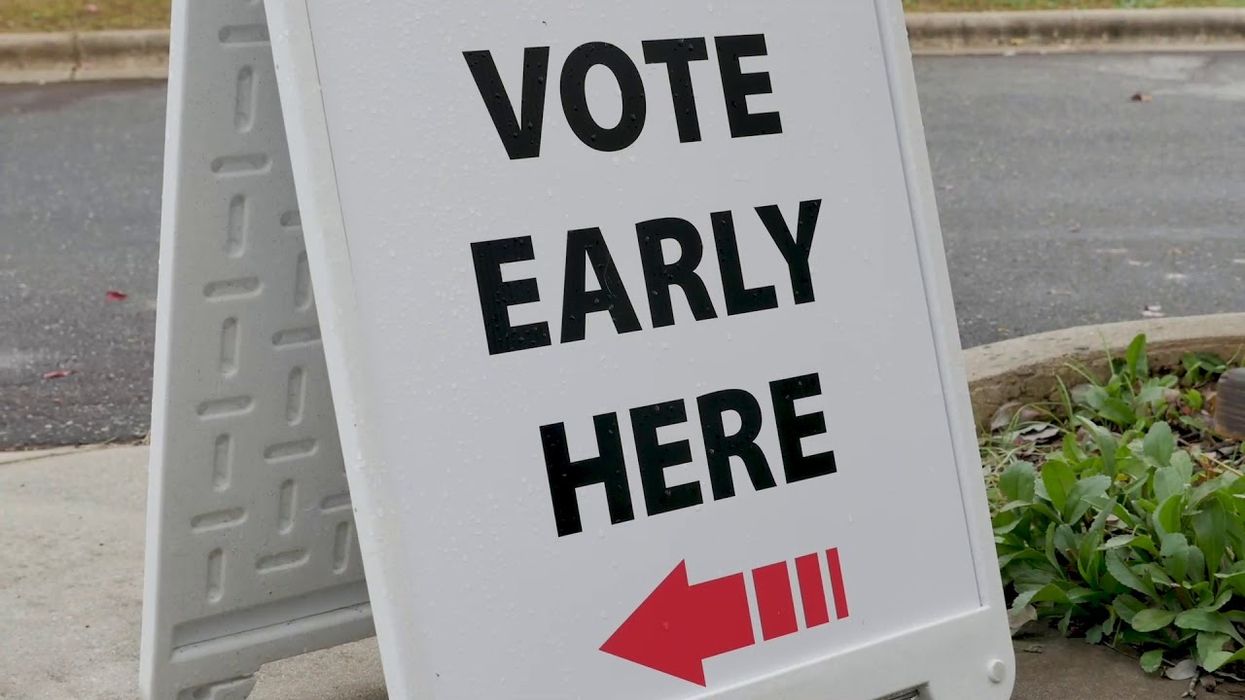States will get $400 million to make voting in the coronavirus presidential election easier and safer, but with almost no strings attached, under the massive economic recovery package unveiled Wednesday.
The pot of money in the nearly $2 trillion stimulus deal, on a fast track to pass the Senate by day's end with the House vote timetable uncertain, is the result of an unusually intense and coordinated lobbying campaign by some of the major players in the democracy reform movement.
While celebrating a rare victory for one of their causes, some groups nonetheless said they would seek much more money in what's likely to be another pandemic response package from Congress this spring. These groups warned the initial infusion of cash will prove insufficient to prevent justifiable anxiety about voting this fall, and that an absence of any legislative mandates will allow too much of the grant money to get spent unwisely.
Expecting the pandemic will result in a record flood of early voting and absentee ballots, the advocates told congressional leaders that election officials would not be equipped — to staff polling places well in advance, print and deliver millions of mail-in ballots, and then tabulate the results quickly and accurately — without spending at least $2 billion in the next seven months.
Progressive groups also pressed senators, who dominated negotiations with the Trump administration, to pair the money with requirements that states expand their periods for online registration, lengthen early voting calendars and guarantee a free voting-from-home option for everyone in the country.
Democrats embraced the idea, hoping the historic public health crisis would offer a rationale for nationalizing policies that have smoothed access to the ballot box, boosted turnout and reversed sagging confidence in the reliability of elections in the states where they're already in place.
But they found no support among Senate Republicans, who were united against any new federal control over elections now conducted by at least 6,000 city, county and state jurisdictions. Many also expressed apprehension that universal voting-by-mail, especially if hastily imposed, would prove a boon to election fraudsters.
Four years ago, 24 percent of votes were mailed in or delivered in sealed envelopes and 17 percent were cast in person before Election Day; in 16 states more than half the ballots were cast one of those ways. Almost no credible allegations of mail-in fraud were reported then or so far this year, when five of the seven presidential primaries with the highest turnout to date were conducted mainly by mail.
Senate Majority Leader Mitch McConnell initially opposed providing any election aid in the stimulus package, giving in only after enough GOP colleagues reported election officials in their red states warning they could not handle the expected influx of voting from outside polling places on Election Day.
It was a striking parallel to what happened last summer. After months of refusing, McConnell relented to pressure in his own caucus and backed more grants to the states to buy paper-based voting equipment and otherwise bolster election security in the face of an expected resurgence of the Russian interference efforts of 2012.
Like that fund, which Congress eventually filled with $425 million, the new election grants will be doled out by the Election Assistance Commission, a tiny agency that has struggled with funding and staff cuts in recent years.
Advocates for universal voting by mail, which started in Oregon in the mid 1990s and will be the default across just four additional states this fall, say the laws of 17 states would need to be rewritten first. Election administrators in the remaining states have the power to turbocharge the already permissive rules for getting an absentee ballot.
Nine states don't currently have any in-person voting ahead of Election Day. Four of those — reliably blue Connecticut, reliably red Alabama and Missouri, and purple battleground New Hampshire — are also states with the most restrictive absentee ballot rules, requiring voters of all ages to list an excuse on each application.
"In November, when there's a very real chance that circumstances may keep many seniors away from the polls, the system might well deliver Republicans a net advantage," former national GOP Chairman Michael Steele and Eli Lehrer of the conservative R Street Institute think tank wrote Tuesday in a Washington Times op-ed endorsing voting by mail.
"Such systems save money, don't require anyone to wait in line, don't require disrupting activities in public buildings and are essentially immune from large-scale fraud," they wrote, and "many voter intimidation tactics become impossible when everyone can vote in the privacy of their own homes."
Steele's support for the funding was central to the work of the good governance coalition that formed within hours a week ago to press for election system relief in the third, and by far biggest, stimulus package Congress has written since the Covid-19 outbreak started transforming American life and pushing the economy into a crisis.
The groups mounting the most aggressive lobbying campaigns — including Common Cause, the Brennan Center for Justice, Unite America, the National Vote at Home Institute and Issue One — soon realized that new federal mandates were a lost cause and focused instead on delivering money to the states.
Several of them also teamed up as part of a cross-partisan coalition of democracy reform organizations — including RepresentUs, Stand Up Republic, the Leadership Now Project and the conservative Lugar Center think tank — to produce a 30-second social media ad advocating for the funding. Issue One had its own 15-second spot, targeted to eight states with influential GOP senators.
(Disclosure: Issue One operates, but is journalistically independent from, The Fulcrum.)




















Trump & Hegseth gave Mark Kelly a huge 2028 gift